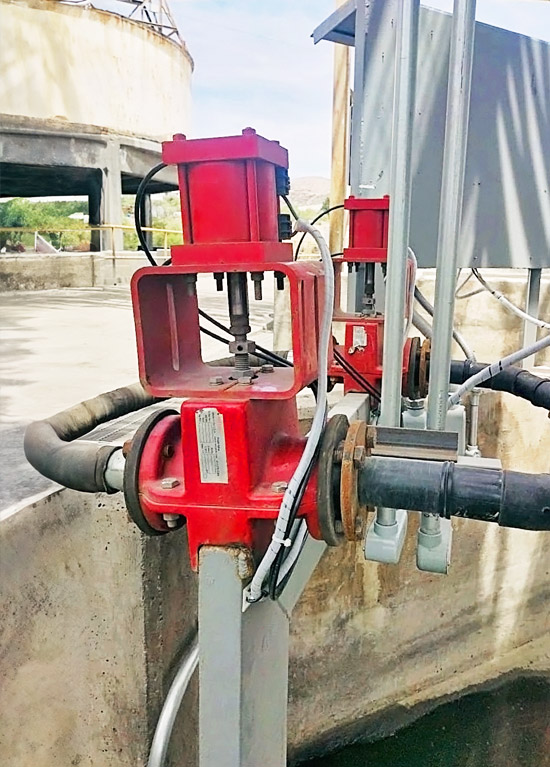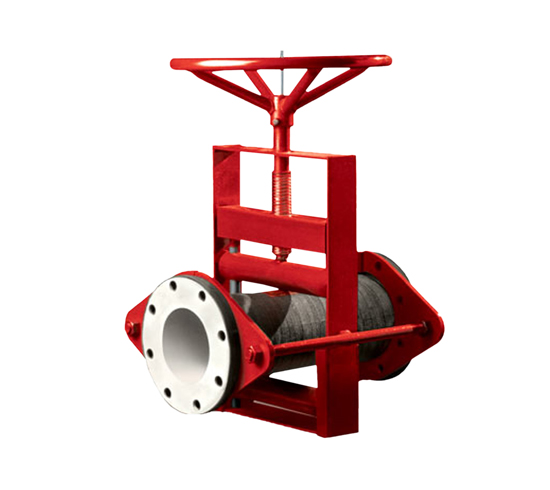
Pinch valves are engineered to handle some of the most challenging process fluids, including abrasive slurries, corrosive chemicals, and high-solids media. They operate by compressing a flexible elastomer sleeve, which isolates the fluid or provides unobstructed flow.
This design eliminates direct contact between the media and valve body, significantly reducing wear and extending service life. With no cavities or crevices to trap solids, pinch valves provide a reliable solution in systems prone to erosion, corrosion, or clogging.
Pinch valves come in various designs to suit operational requirements. Common types include manual pinch valves, where a handwheel compresses the sleeve, and air-operated pinch valves using pneumatic actuators.
Advanced designs feature reinforced sleeves for high-pressure applications and dual-pinch configurations for enhanced sealing, and conical sleeves for modulating service. Sleeve material selection is critical, with options like natural rubber, EPDM, and nitrile to withstand diverse process conditions.


Industries such as mining, wastewater treatment, and chemical processing rely on pinch valves to manage thick, abrasive, and reactive fluids with minimal maintenance. Their full-port, non-clogging design makes them ideal for slurry transfer lines, dewatering systems, and corrosive fluid handling.
The sleeve’s resistance to wear, combined with the valve’s capability to fully open or close under extreme conditions, makes pinch valves the preferred choice for long-term, low-maintenance fluid control in harsh environments.
You bring the challenge — we’ll bring the valves, instruments, and expertise.
Let's talk!